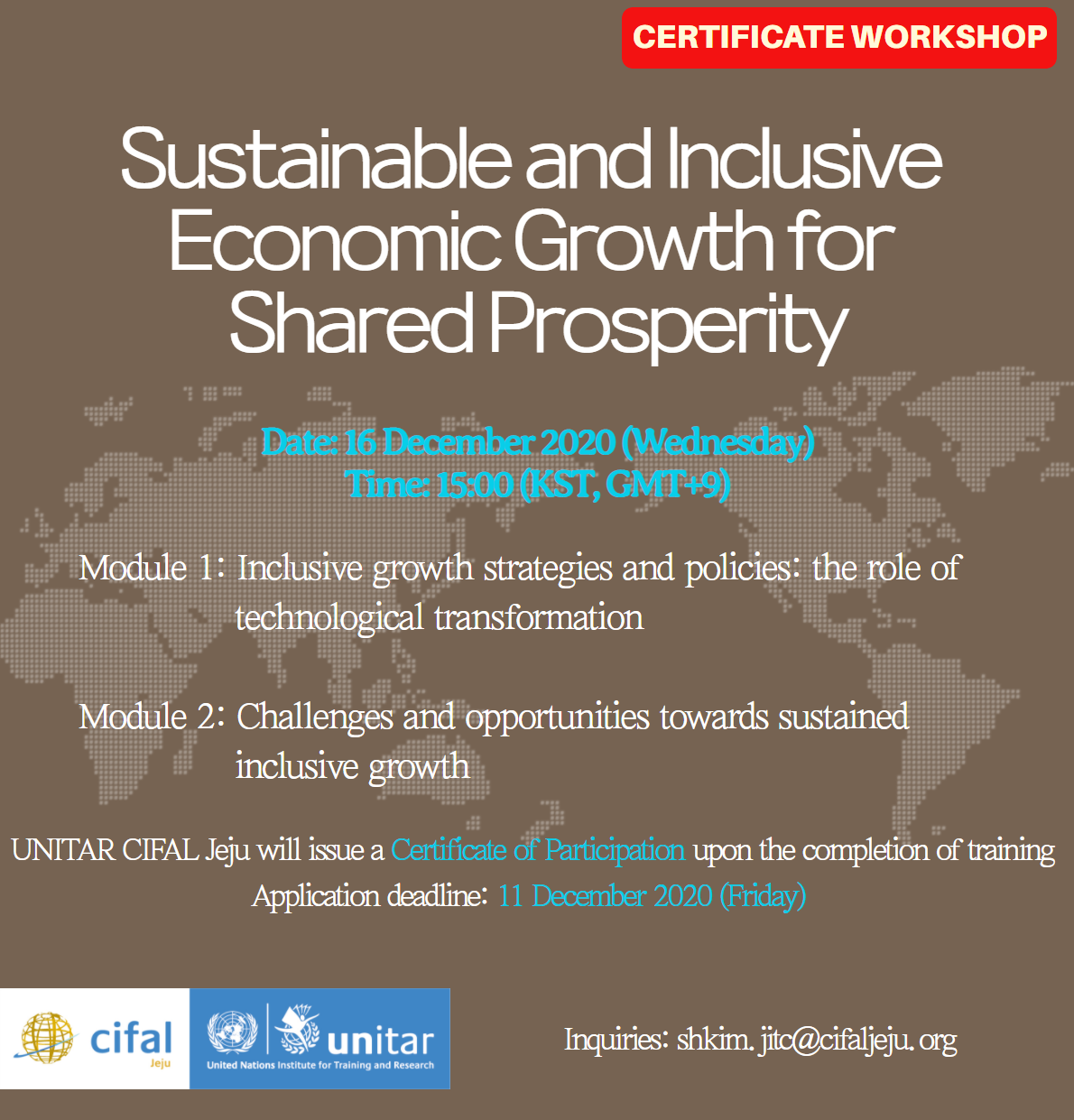Background
“Shared prosperity” has become a common phrase in the development policy discourse. Focusing on overall economic growth and inequality, the concept focuses on sustainable increase in the income and well-being of the poorest 40 percent of the population in each country. Goal 10.1 of the Sustainable Development Goals specifically aims to “progressively achieve and sustain income growth of the bottom 40 percent of the population at a rate higher than the national average”. The concept “shared prosperity” was inspired from earlier writings by Kaushik Basu, Cornell University economist (World Bank’s Chief Economist at the time). In his “On the Goals of Development”, he wrote the following:
“This suggests a natural correction for the way we evaluate different economies. Essentially, it says that in evaluating an economy’s state or progress, we must focus primarily on how the poorest people are faring. A first cut at doing this – and the criterion that I want to advocate for this section – is to look at the economic condition of the poorest 20% of the population. […] Instead of equating a country’s progress with the growth rate of per capita income in general, we should look at the growth rate of the per capita income of the poorest 20 percent of the population” (Basu, 2000, p.65)
Instead of measuring economic development with overall average growth in a country, the shared prosperity goal focuses on the bottom 40 percent of the population. Growth is important, and it should be persistent; however, it ought to be made sure that progress is reaching the least well-off in the society. In other words, economic growth as well as equity should be both considered.
Actually, we have seen progress towards ending extreme poverty throughout the past 25 years. The number of people living below the International Poverty Line (IPL) decreased from 1.9 billion in 1990 to 689 million in 2017. However, number of factors are slowing down the process, and even making the process stagnant. First, ample evidence shows that climate change is a major obstacle to reaching goals on poverty reduction and shared prosperity. World Bank estimates that between 68 million and 132 million people could be pushed into poverty by 2030 through various channels of climate change impact. These people as well as those who are already living in poverty face greater vulnerability when shocks such as natural disasters occur, due to a number of reasons, including their low ability to protect against disruptions on infrastructure, high dependence on incomes derived from agricultural and/or ecosystems, and greater susceptibility to diseases related to climate.
Second, COVID-19 is another major threat to shared prosperity. The unprecedented pandemic has led to a deep recession in the global economy. Many countries are imposing containment measures, and such measures are hampering trade and further diminishing economic activities. According to most recent estimates, between 88 million and 115 million more people are expected to be pushed into extreme poverty in 2020. One of the biggest implications from this juncture is the socio-economic divides. The most vulnerable and the least well-off will be affected disproportionately. Indeed, job losses and revenue declines due to COVID-19 are hitting the already-poor and vulnerable people hard, and in many cases, these groups are the hardest hit. These groups face greater risks because their jobs are more likely to be easily disrupted or eliminated. For example, people with lower levels of education are less likely to be able to work remotely; poorer workers are more likely to work in places where social distancing is hard to keep. This will further divide the gap between the rich and the poor. Moreover, vulnerable groups such as women also suffer unduly from the pandemic. The main reasons for women to face greater exposure from economic consequences mostly come from their care responsibilities in their households. For example, in many cases, women have higher burden of care responsibilities, and due to this burden, they are in many times forced to reduce paid working time or to leave the labor market in the face of the pandemic.
Against this backdrop, CIFAL Jeju organizes an online workshop to assist public officials and leaders of society in their effort to design and implement policies for inclusive and sustainable economic development. By partaking in interactive discussions, participants can share best practices regarding the facilitation of inclusive growth and promoting resilient recovery for creating a sustainable future.
Event details
Event type Online workshop
Date & Time 16 December 2020, 3 PM (KST, GMT+9)
Organizer UNITAR CIFAL Jeju / Jeju International Training Center
Certificate UNITAR CIFAL Jeju / JITC will issue a certificate of participation upon the completion of training
Target audience
This online event is open to government officials and personnel from non-profit, civil, and private sectors in Asia and the Pacific region, including focal points for:
economic policy, sustainable economic development, inclusive growth, shared prosperity
Training (this event) is also open to representatives from the academia, research entities, development agencies and think tanks actively engaged in the areas stated above.
Program
|
Time
|
Detail
|
|
14:20-15:00
(40 min)
|
Pre-session (participants only)
- Group introduction sharing
|
|
15:00-15:05
(5 min)
|
Opening remarks
- Sul Kyung Hoon, Director of CIFAL Jeju
|
|
15:05-15:25
(20 min)
|
Module 1
- Inclusive growth strategies and policies: the role of technological transformation
|
|
15:25-15:45
(20 min)
|
Module 2
- Challenges to sustainable development: poverty, instability, and agriculture
|
|
15:45-16:20
(30 min)
|
Discussion and Q&A
|
|
16:20-16:30
(10 min)
|
Session summary (participants only)
|
Application and deadline
● Apply by 11 December 2020 (Friday) at: http://shorturl.at/euGH0
● Kindly note that only selected applicants will be notified individually
● Inquires: shkim.jitc@cifaljeju.org









